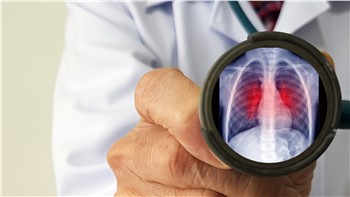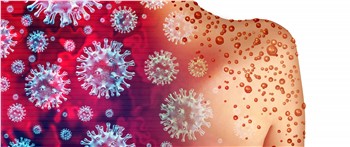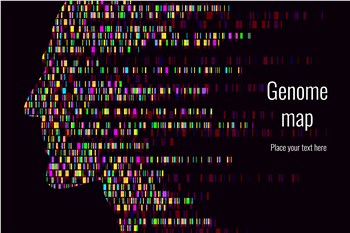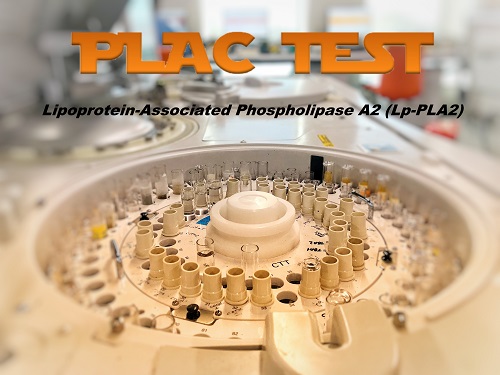Turkey's

Reference Laboratory
Services
Menu
Drug Levels
Microbiology
Clinical Biochemistry
Congenital Metabolic Disorders
Haematology Laboratory
Prenatal Screening Tests
Molecular Microbiology
Allergies
Transfusion Centers
LabBlog!

27 Ekm.22
Mevsimsel grip hastalığının etkenlerinden olan Influenza A ve B, Koronavirüs hastalığının etkeni SARS-CoV-2 virüsü, Solunum sinsityal virüsü enfeksiyonu etkeni RSV, Adenoviral solunum yolu enfeksiyonları etkeni olan adenovirüslerin hızlı tanısını sağlayan bir antijen testidir.

18 Tem.22
İnsanlarda ilk defa 1970 yılında Kongo Demokratik Cumhuriyeti’nde tespit edilmiştir. Sonrasında Orta ve Batı Afrika’daki ülkelerde görülen bu hastalığın sıklığı tam olarak bilinmemekle birlikte Kongo Demokratik Cumhuriyeti’nde 2005’e kadar yıllık 1000’e yakın olgu bildirilmiştir. Hastalık dönem dönem Afrika kıtasından enfekte hayvanlar ve insanlar aracılığıyla diğer kıtalara yayılmakta ve buralarda küçük küçük salgınlar yapmaktadır.

14 Ock.22
Genetik bir miras olarak ebeveynlerimizden aldığımız DNA’mızda bizlere ait bireysel özellikleri içeren tüm bilgiler bulunmaktadır. Bu bilgiler kan grubu, boy, kilo gibi bireysel özelliklerimizden, diyabet, kanser, kardiyovasküler hastalıklar gibi yüzlerce farklı duruma yatkınlık yada direnci belirleyen özelliklerle ilişkilidir. DNA’mızdaki bu bilgilerin çevresel faktörlerle etkileşmesi sonucu kişisel özelliklerimiz ve hastalıklar ortaya çıkabilmektedir.

22 Ara.21
PLAC TEST (Lp- PLA2 Aktivitesi) Kalp Hastalığı Riskinizi Biliyor musunuz ?
PLAC testi; kanda Lp-PLA2 enzim aktivitesini ölçen ve koroner kalp hastalığı riskini tahmin etmek için kullanılan bir belirteçtir.
Microbiology
Serology Tests
Antigen-antibody reactions
The only way to understand if an antigen-antibody reaction is taking place is to identify the direct or indirect complexes formed.
Aglutination Tests
An antigen reaction with an antibody is identified by agglutination (clumping). If the antigen is an erythrocyte, then the term “haemagglutination” is used. Acıbadem Labmed laboratories process qualitative and quantitative agglutination/haemagglutination tests.
In quantitative testing results are obtained through titration. Titration is the term attributed to the maximum dilution for visible agglutination. Some of the diagnostic tests are agglutination tests such as heterophylic antibody for EBV, Gruber Widal for Salmonella, Wright for Brucella and “immune capture” and the haemagglutination tests for Echinococcus and Trepanoma pallidum.
Immunochromatography Tests
Are rapid tests based on investigations into antigen or antibodies in relation to infection factors in samples taken from the patient. As an example these may the tests such as for Strep A, pneumococcus, Legionella, Helicobacter pylori, EHEC 0157, Clostridium difficile toxin, Cryptosporidium, respiratory synctial virus, neurovirus, adenovirus and the rotavirus antigen.
Enzyme Immunoassay (EIA) Tests
At the Acıbadem Labmed Clinical Laboratories serology department viruses, bacteria, parasites and fungal serologies are studied in a wide spectrum. IgG, IgM, IgA and total antibody levels of microorganisms, IgG avidities, Antibody Specific Indeces (ASI) çok çeşitli yöntemlerle ie; ELISA, LIA, ELFA, ECLIA and Western Blot).Enzyme Linked Immunosorbent Assay, or ELISA, is based on measurement of the enzymatic reaction in relation to immune complexes.
An enzyme may be attached to an antigen or an antibody. ELISA tests employ micro-ELISA methods. Serologic tests groups on diseases of which specific panels may be composed such as TORCH infections (Toxoplasma, Rubella, Cytomegalovirus, Herpes simplex virus), Hepatitis (A, B, C, D and E) infections, syphillis, infectious mononucleosis, AIDS, Lyme Disease, brucellosis and chlamidia infections) are researched.
Tests are performed on kits or automated analysers using the most recent in technology and are then evaluated by specialists. Tests are generally evaluated after more than one method has been tried and have significant importance in the diagnosis of infections. Tests are finalised in the shortest possible time and are reported along with the requisitecomments and precautions to be taken.
Autoantibodies, are those antibodies which the body’s immune system develops against its own cells in response to microbes or viruses. Symptoms exhibited by the body can vary depending on the characteristics of the affected cell. A clinical table may be exhibited which is systemic or specific to the organ. Autoantibodies are identified by means of Indirect Immunfluorescence, or IFT, ELISA, BLOT methods. Regardless of the method used, all work realised is performed by automated systems. In IFT testing systems microscopic evaluations are corroborated by two persons. Suspect findings are confirmed using different methodologies. Reports of complicated cases will have additional commentary attached. If so required results may also be discussed with clinical staff. Our laboratory undertakes and duly documents each of these group tests under the routine control of foreign institutions such as DGKL and INSTAND.
Listed below are a few of the tests performed in our laboratory:
Avidity tests: Rubella, Toxoplasma, CMV, VZV
Antibody Specific Index tests: Borellia burgdorferi, CMV, HSV, Rubeola, Rubella, Mumps
Antibody tests: Hepatitis viruses (A, B, C, D, E) (EIA, ELISA and immunblot), EBV panel (ELISA and immunblot), Treponema pallidum-Sifiliz (Agglutination, IFT), Chlamydia (IFT), Herpes virus type 1,2,6 (ELISA) HIV antibody +p 24 antigen (EIA ve ELFA), Influenza A/B, Parvovirus B19, Borrelia (ELISA and immunblot), Bartonella henselae/quintana, Brucella,Legionella pneumophila, Leptospira, Helicobacter pylori, Rubeola (measles), Rubella, Varicella zoster virus, Cytomegalovirus, Chlamydia trachomati Chlamydia pneumonia, Chlamydia psittaci, Campylobacter jejuni, Coxiella, Dengue virus, Diphteria, Echinococcus, Enterovirus, Haemophilus influenzae tip B, Hantavirus, Mumps, Mycoplasma pneumonia, Neisseria gonorrhoeae / meningitidis, Parainfluenzae, Tetanus, Tularemi, Histoplasma, Saccharomyces cerevisiae, Entamoeba histolytica, Schistosoma, Leishmania, Toxoplasma, Toxocara canis, Fasciola hepatica, Filariasis, Trypanosoma, West Nile virus, Yersinia.
We have a wide spectrum of autoantibody tests:
Tests done by the IFT method: ANA, dsDNA, ANCA, GBM, Islet, EMA, IgA / IgG, ASMA, LKM, AMA, APA, Intrinsic antibody
Tests done by the ELISA method: ANCA (pr3, mpo), Gliadin IgA / IgG, Tissue transglutaminase, IgA / IgG, Cardiolipin IgM / IgG, Phospholipid IgM / IgG, Phosphotidilcerin IgM / IgG, Beta 2 glycoprotein IgM / IgG , GAD, TRAK, CCP
Tests done by the BLOT method: ENA profile (Sm, RNP, SSA, SSB, Scl70, Jo1, Pmscl, centromer, histone, nucloesome)
Antigen Tests: HDV Delta antigen, Candida albicans antigen (Beta glukan), Aspergillus antigen (Galaktomannan), Histoplasma, Cryptococcus neoformans, Entamoeba histolytica, Giardia, Helicobacter pylori, Campylobacter, Influenza A and B, Legionella pneumophila, Streptococcus pneumoniae, Norovirus, Rotavirus, Adenovirus, RSV, Chlamydia trachomatis, Cytomegalovirus pp65.
Culture - Antibiotics Sensitivity Test
A mass spectrometer is used in the exmination of cultures and the identification of micro-organisms. Antibiotic / antifungal sensitivity test are realised according to EUCAST (European Committee on Antimicrobial Susceptibility Testing) CLSI (Clinical and Laboratory Standards Institute) procedures and results are reported with MIC (minimum inhibitory concentration) values.The working area used to evaluate Category 3 hazardous group micro-organisms in the microbiology laboratory is access controlled and is negatively pressurised.
Personal safety while working in this environment is acheieved through gloves, special masks (N95/FFP3 standards), protective eye-wear and boxer type cover-alls. All mycobacteria tests such as ARB (acid resistant basil) dyeing, mycobacteria rapid culture and mycobacteria antibiotic sensitivity testing (MYCOLOR TK 520) and mycobacteria PCR are carried out here under the highest safety precautions.


